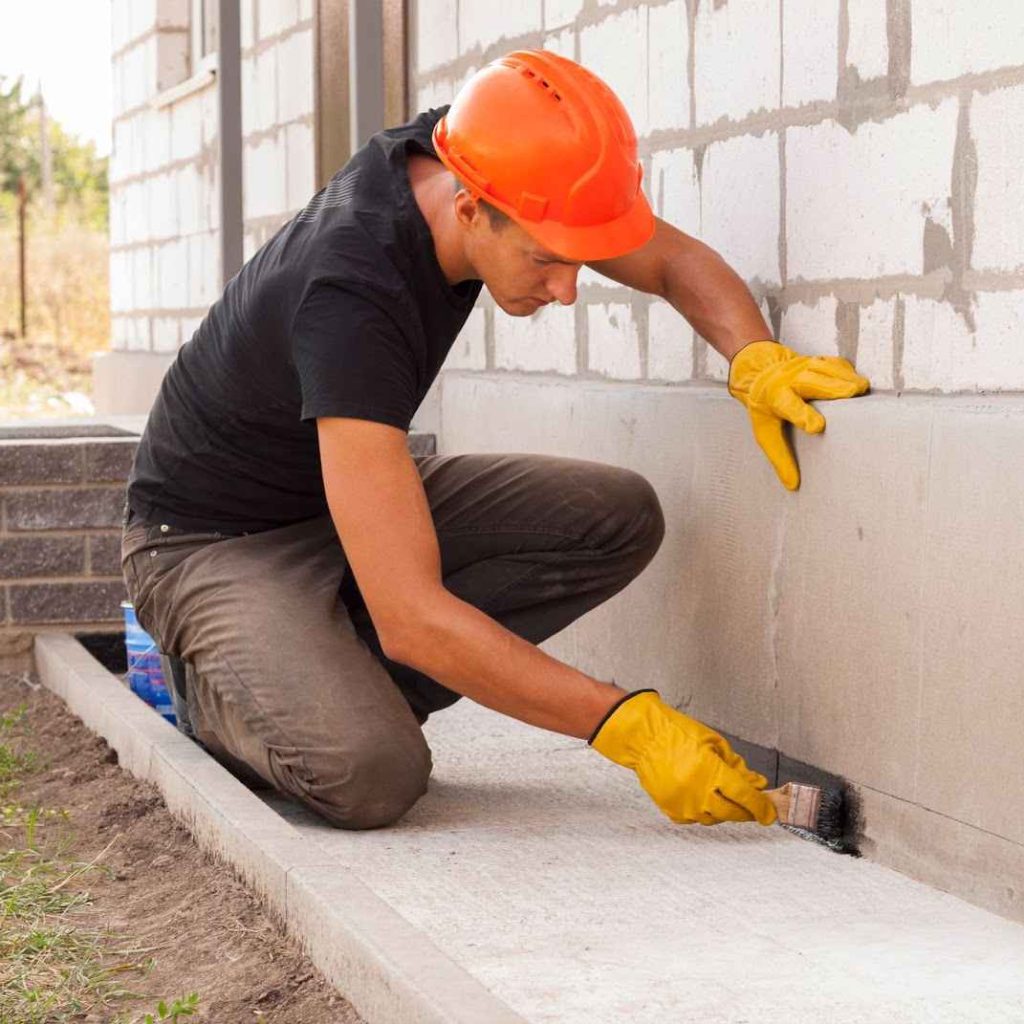Foundation Damage: Signs, Symptoms, and Solutions
Foundation damage is a serious issue you should always pay attention to. A solid foundation is essential for the structural integrity of any building. Unfortunately, foundation problems occur from soil conditions, the age of the building, or weather conditions.
Being aware of the signs and symptoms of foundation damage will help you take timely action and prevent further issues. In this blog, we will explore the common signs to look out for and discuss the solutions to address these problems effectively.
Recognizing the signs
Understanding the signs and symptoms of foundation damage is the first step toward addressing the issue. Here are some common indicators to watch out for:
Cracks in your walls
Cracks in your walls are like wrinkles — some are normal signs of aging, while others might indicate a deeper issue. The key is understanding the type and behavior of the crack to see if it’s connected to foundation problems.
Here’s the breakdown:
- Hairline cracks (less than 1/8 inch wide) are often cosmetic and don’t necessarily mean trouble, especially in areas with fluctuating temperatures that cause the walls to expand or contract.
- Larger cracks (wider than 1/4 inch) or growing cracks are more concerning, particularly if they’re horizontal or stair-step-shaped. They could signal movement in the foundation due to pressure from soil or settling.
- Cracks around windows and doors: Normal settling or improper installation causes these. But if they keep widening, it could indicate more significant foundation movement.
If you notice any concerning cracks, it’s best to err on the side of caution and consult a foundation professional. They assess the situation and determine if the cracks are structural and require repair to prevent further damage to your home.
Uneven or sloping floors
Have you ever noticed that your home’s floors seem sloping or uneven?
While uneven floors are a nuisance, they also indicate foundation damage. If you notice furniture or toys moving on their own, you likely have a sloping floor. This is more noticeable on hardwood or tile floors.
Another sign of uneven floors is when you feel like you are constantly walking on a slope. This is particularly evident when going from one room to another, as the transition between the two areas may feel uneven or unbalanced.
Uneven floors also lead to a sensation of instability when walking, making you feel like you need to be extra careful with your steps.

Doors and windows not functioning properly
Sticking doors and windows suddenly becoming difficult to open and close are often a telltale sign of foundation woes. Here’s why:
Shifting foundation
Imagine your house as a giant box. When the foundation settles unevenly because of soil pressure changes or other factors, it acts like the box is warping.
This throws everything out of whack, including the openings for doors and windows. As the walls shift and become misaligned, the frames for your doors and windows get squeezed or pulled, making them difficult to operate smoothly.
Uneven floors
Foundation movement also causes floors to become uneven. This wreaks havoc on doors, especially those located on the lower level. The door frame will tilt as the floor dips or slopes, causing the door to scrape against the bottom or get stuck shut.
Warping from moisture
Foundation problems sometimes lead to moisture issues in your crawl space or basement. This excess moisture causes door and window frames, especially wood-made ones, to warp and swell, making it difficult to open and close them properly.
If you’re experiencing any of these issues, it’s wise to get your foundation inspected by a professional. Early detection and intervention will save you money and prevent more serious structural damage.
Sticking cabinets or countertops
Sticking cabinets and countertops are a red flag for foundation problems because they rely on level and stable walls for proper alignment.
The walls move slightly when the foundation shifts due to settling or pressure from the soil. This movement is often subtle, but it’s enough to throw off the precise fit of previously installed cabinets and countertops.
Gaps between baseboards and walls
Gaps between your baseboards and walls are a potential sign of foundation settlement. Here’s why:
Settling foundation
When you build a house, everything is level and plumb, with baseboards fitting snugly against the walls. Over time, however, the foundation may settle unevenly because of soil compaction or changes in moisture content. This settling causes the walls to shift slightly, pulling them away from the baseboards and creating unwanted gaps.
Loss of support
Baseboards serve a decorative purpose, but they also act as a finishing touch, covering the minor unevenness that occurs where the wall meets the floor. Gaps between the baseboards and the wall indicate that the floor itself may no longer be fully supported by the foundation, potentially leading to dips or creaks in the floorboards.
Severity matters
Small gaps (less than ¼ inch) might not be a major cause for concern, especially in newer homes where you’d expect some settling. However, larger gaps or gaps that develop rapidly are more likely to be linked to foundation issues and warrant further inspection.
Suppose you notice gaps and other signs of foundation trouble, such as cracks in walls or sticking doors. In that case, it’s best to consult a professional to assess the situation and determine if repairs are necessary.
Cracks in the foundation
Cracks in your foundation, especially those that grow or display certain characteristics, are often a telltale sign of trouble. Unlike harmless hairline cracks that appear due to temperature fluctuations, cracks usually point to structural problems.
Cracks wider than ¼ inch, stair-step cracks, or horizontal cracks are all red flags. These cracks signify movement within the foundation itself, possibly caused by pressure from expansive soil pushing against the walls or uneven settling of the foundation.
Left unaddressed, these cracks can worsen and compromise the structural integrity of your home.

Solutions to foundation problems
Now that we have discussed common signs of foundation damage, let’s explore the solutions available to address these issues:
Foundation repair
Depending on the severity of the damage, foundation repair may be necessary. This involves techniques such as underpinning, where supports are added beneath the foundation to stabilize it. Professional contractors with expertise in foundation repair can assess the situation and recommend the appropriate measures.
Drainage improvement
Poor drainage contributes to foundation problems, especially if water accumulates near the foundation. Installing proper drainage systems, such as gutters and downspouts, helps redirect water away from the foundation and prevent excess moisture that could weaken the structure.
Soil stabilization
Expansive soils, commonly found in certain regions, swell when moisture is exposed and shrink when they dry out. This continuous movement causes foundation damage. Soil stabilization techniques, such as adding moisture barriers or using chemical treatments, can help mitigate the effects of expansive soils.
Preventive measures
Regular maintenance and inspections help prevent foundation damage. Some preventive measures homeowners can take to minimize the risk of foundation issues are keeping the soil around the foundation evenly moist, avoiding extensive landscaping near the foundation, and ensuring proper grading.
Seek professional help
When dealing with foundation problems, you should consult professional contractors specializing in foundation repair. They have the expertise, tools, and knowledge to assess the situation accurately and recommend the most suitable solutions.
Hudson Douglas Public Adjusters is here to help
Does your home have any of the warning signs we’ve mentioned? Foundation repairs are a significant expense, but you might not have to shoulder the burden alone. Many homeowners’ insurance policies cover foundation damage, but navigating the claims process can be complex and frustrating.
That’s where Hudson Douglas Public Adjusters steps in. Our team of experts specializes in working with homeowners to ensure you receive the maximum compensation from your insurance company for foundation repairs.
Don’t go through this battle alone — contact Hudson Douglas Public Adjusters today for a free consultation and see if we can help you obtain the financial resources you deserve to restore your home’s stability.


